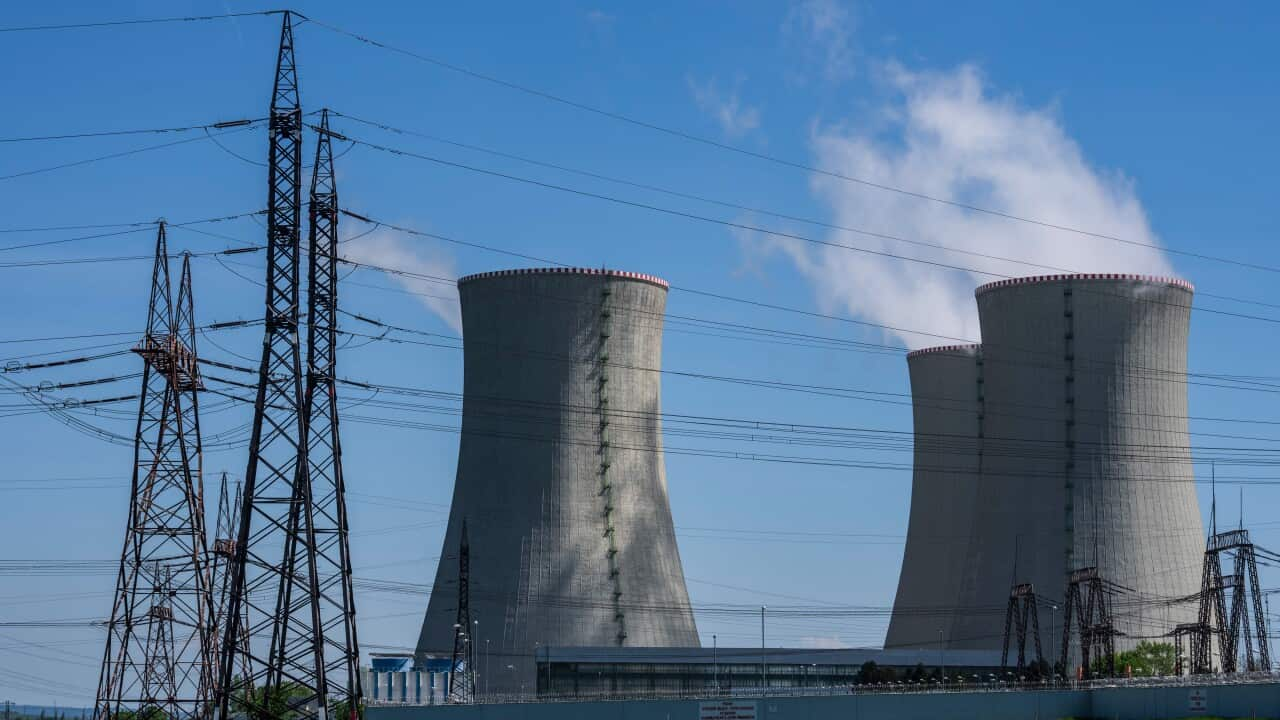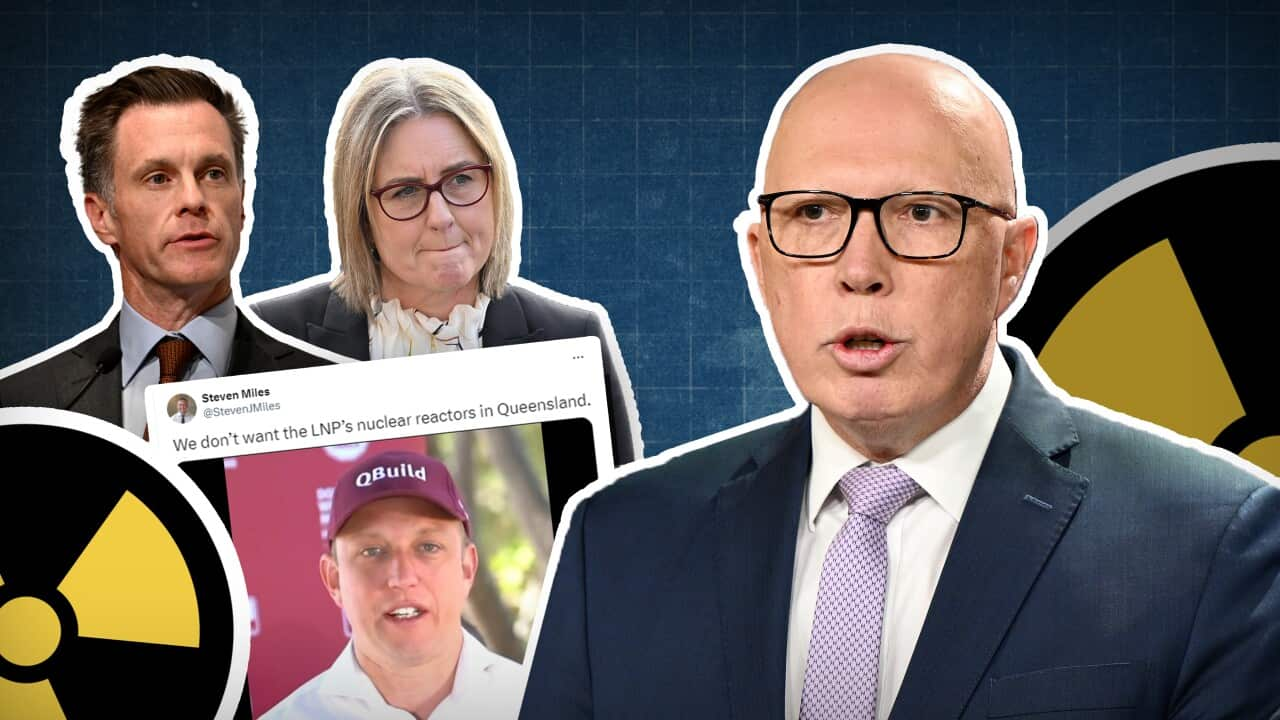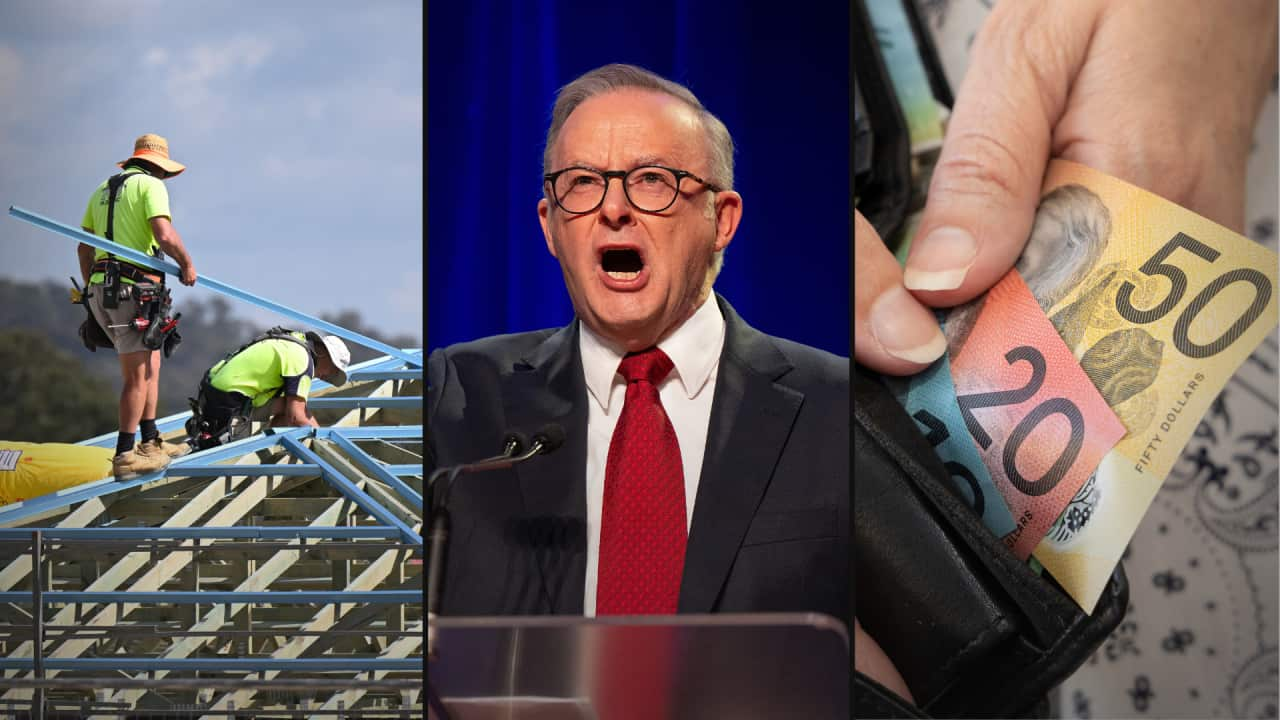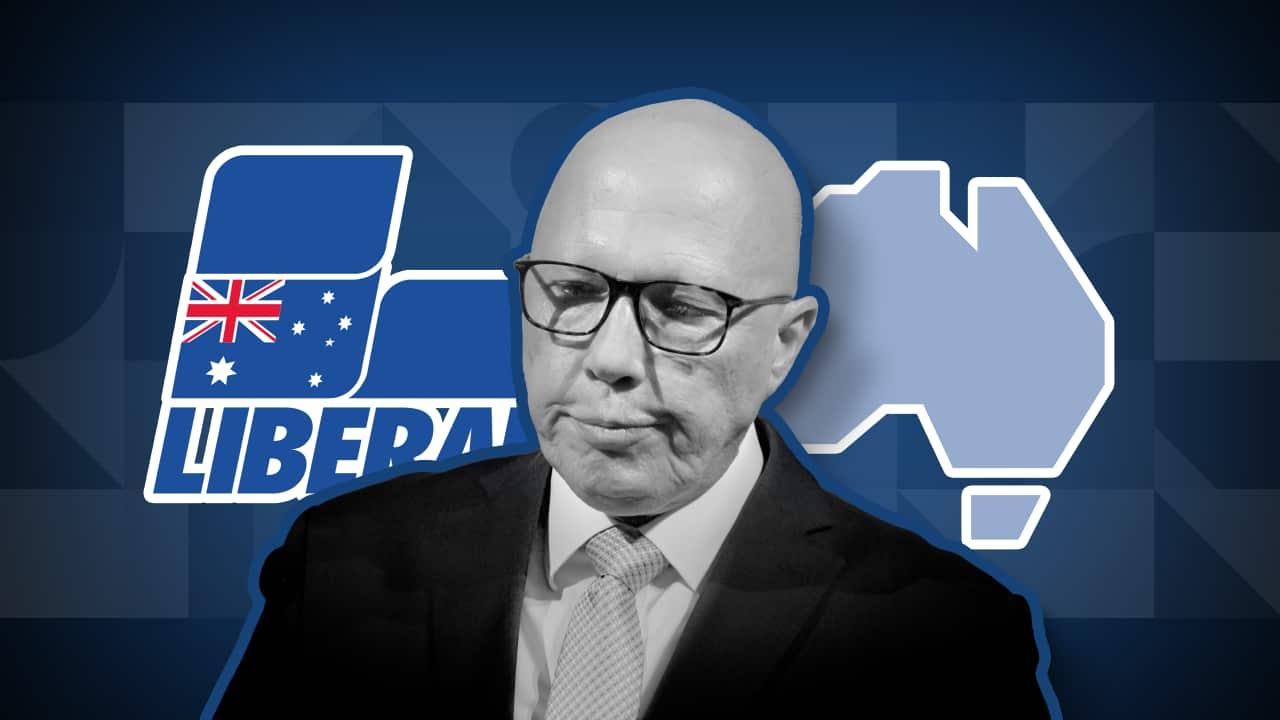Some Coalition politicians have signalled their continued support for nuclear energy despite it being what an expert described as "electoral suicide".
Liberal MP Tim Wilson said Australia will have to "de-industrialise" without nuclear power as he backed the energy source during .
The Liberals and Nationals will be conducting reviews of their policy platform as they take stock of a sweeping election defeat, which resulted in Labor claiming majority government.
The Coalition has lost a number of its moderate MPs as metropolitan areas turned away from the Liberals.
Wilson has bucked that trend, re-claiming the seat of Goldstein in Melbourne from independent MP Zoe Daniel, and throwing his support behind a future in which nuclear energy plays a role.
"I, in my core sense of belief, believe in the role of nuclear power," he said.
'Many' in the Coalition are pro-nuclear
Nationals MP Michael McCormack said many members of the Nationals and Liberals remain "very pro-nuclear".
When asked if could cause a split between the Liberals and Nationals, he told Radio National on Thursday morning: "We'll have to wait and see."
Asked to clarify his response, McCormack said: "There are many people within the Liberal Party who are very pro-nuclear, just like the National Party, and obviously there will be people who will now want to review all the policies."
"Everything will be on the table, there will be reviews by both parties," he said.
McCormack said it's a "matter for the parties" whether a nuclear energy policy will be taken to the next election in three years' time.
"People do believe that if we're going to get to net zero, that it [nuclear] has to be part of the energy mix, there are a lot of Liberals on board with that too," he said.
However, Liberal senator Maria Kovacic said she wanted the policy to be dumped.
"The Liberal Party must immediately scrap the nuclear energy plan and back the private market's investment in renewable energy," she said on Tuesday.
LISTEN TO
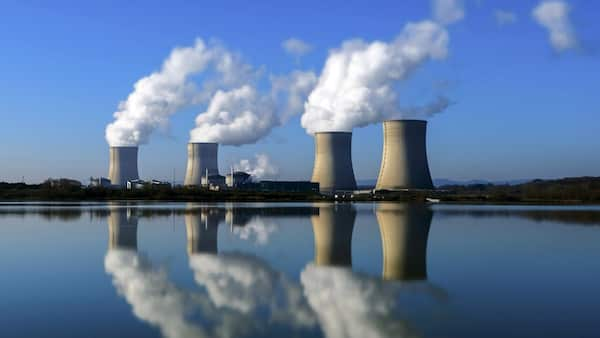
How feasible is nuclear power in Australia and what would it cost? CSIRO and experts take a look
SBS News
07:48
What was the Coalition's nuclear policy?
In mid-2024, then-Opposition leader Peter Dutton announced that if elected, across NSW, Victoria, Queensland, South Australia, and Western Australia, pledging it would lead to cheaper energy.
The Coalition estimated the project would cost $331 billion and had planned to build the plants in the following electorates:
- Liddell in NSW, electorate of Hunter
- Mount Piper in NSW, electorate of Calare
- Tarong in Queensland, electorate of Maranoa
- Callide in Queensland, electorate of Flynn
- Port Augusta in SA, electorate of Grey
- Loy Yang in Victoria, electorate of Gippsland
- Muja in WA, electorate of O'Connor
The party's plan to build the reactors faced opposition from members of the public as well as state premiers who were against nuclear facilities in their home states.
Dutton didn't visit any of the proposed sites during the five-week election campaign.
'Electoral suicide'
There were swings against the Coalition in nearly every seat where it proposed a nuclear plant, except for Flynn in Queensland, according to Australian Electoral Commission data.
Meanwhile, Labor recorded positive swings in every seat where offshore wind projects have been announced.
Adam Simpson, a senior lecturer in international studies at the University of South Australia, described pro-nuclear policies as unpopular "electoral suicide".
But the Coalition didn't have much of a choice when it came to election promises around energy, Simpson told SBS News.
"The Coalition had to come to the election saying something about energy policy if they were going to oppose Labor's policy, and there's not really that many options," he said.
"They could have come out and said, 'We're going to use gas and or coal for eternity', but then they would have to abandon their commitment to net zero."
Fewer moderates in the party
Simpson said there are a couple of reasons the Coalition could come back with a version of the policy for the next election.
"In 2022, they lost all those teal seats. They lost a lot of moderate voices from the Liberal Party. And then that's just been exacerbated in this recent election," Simpson said.
"There are very few voices going to be coming from metropolitan urban areas in the Coalition party room. So that's why I wouldn't be surprised if, after they do the post-election wash-up and assessment of what went wrong, they come out again with another pro-nuclear policy."
Simpson said "cultural opposition" is likely another factor, with the Coalition ideologically resistant to a transition to renewable energy.
"They don't particularly believe in climate change, and it's certainly not a priority for them," he said.
While nuclear energy could be a policy the Coalition runs again in 2028, Simpson predicted it would cause "further devastation" within its remaining metropolitan seats and push the Coalition into the "electoral wilderness" for a generation.
